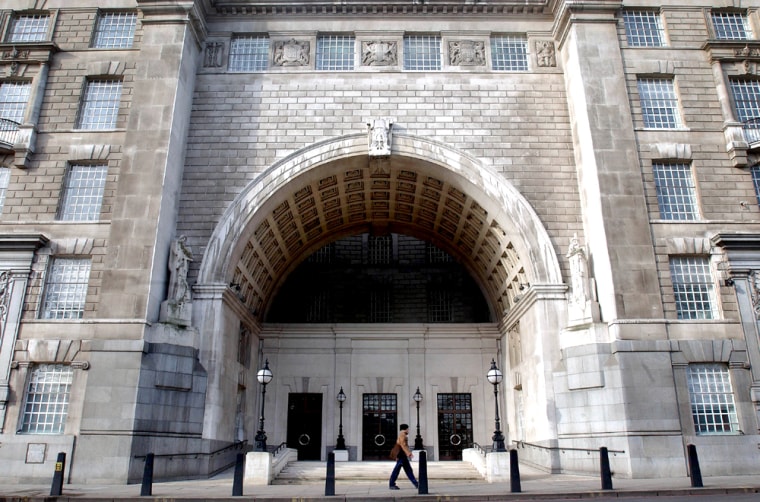As the 9/11 commission dissects the effectiveness of the FBI and the CIA this week, President Bush has suggested that the nation's intelligence agencies need to be restructured — and there have been suggestions that a new agency, modeled on Britain's MI5, may be the answer.
But what is MI5 and how would it work in the United States?
The organization is the United Kingdom’s domestic security intelligence agency. The main purpose of the agency is to protect the nation's economy and national security.
The acronym stands for "Military Unit 5" and was so named as it was one of a series of government agencies established in Britain during World War II. But MI5 has always been seen as one of the most important units because it is responsible for all counterespionage within the U.K. Its counterpart is MI6, which is the equivalent of the CIA.
Established in 1909 by Captain Vernon Kell and Captain Mansfield Cumming as the Secret Service Bureau, the agency was originally intended to target German intelligence.
Eventually, the two men decided to divide their work into home and foreign affairs. "K" then became responsible for countering espionage with the United Kingdom, while "C" was in charge of gathering intelligence from abroad.
Even now, the heads of MI5 and MI6 remain unknown to most of the public and are simply referred to as K and C, respectively.
MI5 objectives
With the end of the Cold War — when the service focused on the threat from the Soviet Union and its allies — the nature of MI5's work changed noticeably.
The demise of the Soviet Union unleashed its own spin-off problems for the service, including the spread of organized crime and the threat of nuclear weapons falling into the wrong hands.
In 1992, for example, it also assumed control of intelligence concerning the IRA’s terrorist activities against the U.K.
Furthermore, the attacks of Osama Bin Laden’s al-Qaida terrorist network on New York and Washington in September 2001 have meant the agency has diverted much attention to the threat of international terrorism posed by Islamic fundamentalists working inside the U.K.
Much of MI5’s work involves the gathering of intelligence and assessing and investigating threats.
It is not, however, a "secret police" and cannot arrest or prosecute individuals. This means much of its investigation is done in cooperation with the police, who are able to carry out further prosecution.
Under the authority of the Prime Minister’s Home Secretary, the agency might also be required to advise against those whom it believes should not be allowed to enter or remain in the U.K. for reasons of security. But again, the decision to do so does not lie with the service.
Unglamorous
MI5 employs around 1,900 people, and recruitment is not as covert as one might expect. Many lower-level jobs are advertised though the local press or posted on government Web sites.
That said, due to the sensitive nature of MI5’s working environment, applicants can expect to go through a vigorous screening process that requires the highest level of security clearance.
However, a future "spook" expecting to pursue a James Bond lifestyle need not apply. Despite Ian Fleming's enthralling world of vodka martinis and tuxedos, the reality of working for the Secret Service is far removed from the glamour of drinking Bollinger champagne at the Monte Carlo casino.
(In addition, Bond worked for MI6, although the job there is considered to be equally unglamorous.)
Instead, new recruits are warned of a working life with long hours involving mundane surveillance, data collection and analysis. Employees can often be called away on assignment at short notice and the financial rewards are limited.
But for those who join comes collective responsibility as the eyes and ears in domestic intelligence, helping keep safe a nation from the threat within.
